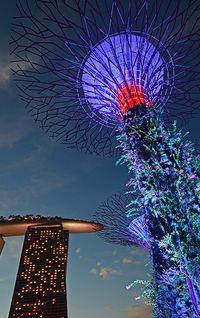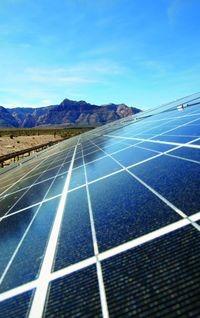Bank of the Year – Standard Chartered
Standard Chartered was involved in nearly all the major international deals in the Middle East & Africa region in 2024 and led quite a few in terms of advising, structuring and underwriting. The Gulf is an active project finance region with a mix of local, regional and international banks. Standard Chartered is the one bank that consistently straddles all three.
In terms of advisory, its major deal in 2024 was the Hafeet Rail scheme, which has been a couple of years in the making and has now been financed.
The US$2.5bn Abu Dhabi to Oman 238km scheme is the first cross-border rail project in the Middle East, the first of its kind government-government collaboration in the region’s rail sector and the region’s first ever greenfield rail project to be financed on a limited recourse project finance basis.
Etihad Rail, Oman Rail and Mubadala Investment established Hafeet Rail to build and operate the freight and passenger network. Standard Chartered raised a US$1.5bn debt package.
The bank supported winning developers in competitive tenders via structuring and underwriting. It backed the Marubeni-led team on its Abu Dhabi waste-to-energy winning bid, underwrote the debt and then sold it down. The US$650m 900,000tpa, 80MW project was financed in June via a US$515m soft mini-perm conventional and Islamic deal. The project financing was all commercial debt with no export credit agency involvement.
It backed the Marubeni and Ajlan & Bros team as pre-bid lead bank on its winning bid for two wind deals in Saudi Arabia totalling 1.1GW: Al-Ghat, 600MW, and Waad Al-Shamal, 500MW. JBIC provided half the debt and the rest was sold down to commercial banks.
The bank backed ACWA Power on its winning bid for the US$937m, 180m gallon a day Hassyan independent water project in Dubai. The scheme is world’s largest seawater reverse osmosis technology scheme. The tariff set the record for the lowest water levelised tariff at US$0.365 per cubic metre. It sold down the mini-perm debt with MUFG. And it backed the ACWA Power/Saudi Electricity Company bid for the 3.6GW Taiba 1 and Qassim 1 combined cycle gas turbine projects in Saudi, a deal that was then largely sold down to local banks.
The bank was involved in many of the other standout deals in the region: the 5.5GW PIF4 solar scheme for ACWA Power in Saudi Arabia, the 1.8GW DEWA VI solar deal for Masdar, the 1.5GW PV3 deal in Abu Dhabi for EDF Renewables and Kowepo, the 1.5GW PV2 refinancing in Abu Dhabi for EDF Renewables and Jinko Power, the 1,234MW/48migd Al Dur 1 refinancing in Bahrain for Engie and GIC and the monster US$10.6bn Amiral petrochemical deal for Aramco and TotalEnergies in Saudi Arabia.
In 2024, the bank established a new Infrastructure & Development Finance Group headed by Abbas Husain and executive director Ali Tahir Jaffery.
Deal of the Year – Hassyan
The US$937m, 180m gallon a day Hassyan independent water project in Dubai recorded a number of notable achievements. It is the world’s largest seawater reverse osmosis technology scheme. The tariff set the record for the lowest water levelised tariff at US$0.365/m3. And it is the first IWP in Dubai.
The scheme was first tendered in 2018 and had two subsequent retenders. It was then bid as a 120migd scheme with an alternate bid of 180migd, which was awarded to an ACWA Power led team ahead of Taqa. The deal is backed by a 30-year water purchase agreement.
The project has a US$749m financing from a diverse pool of local, regional, and international lenders. It marked the first involvement of Saudi export credit agency, Saudi Exim, in a project financing in the region. Sepco III is the contractor and Sidem is the technology provider. DEWA has 60% of the project equity and ACWA Power and US-based investor EIG have 40%. The two announced a joint investment venture in 2023.
The scheme is close to the Dubai – Abu Dhabi highway, 55km southwest of the Dubai Creek. The first 60migd is due online in April 2026, the second 60migd in October 2026 and the whole project is due online in February 2027. The project is being developed using a 30-year build-own-operate model.
The 32.5-year soft mini-perm financing was led by MUFG and Standard Chartered, and includes Emirates NBD Bank, Korea Development Bank, Commercial Bank of Dubai, Abu Dhabi Commercial Bank, Bank of China, China Construction Bank, Agricultural Bank of China, Arab Energy Fund, Sumitomo Mitsui Trust Bank, ICBC and Boubyan Bank.
Deloitte, WSP and Addleshaw Goddard advised DEWA on the deal. Covington & Burling advised the sponsors. Latham & Watkins advised EIG and Norton Rose Fulbright the lenders.
Petrochemical Deal of the Year – Amiral
Aramco and TotalEnergies financed their US$10.6bn Amiral petrochemical plant project financing this year, one of the largest deals in the market in 2024. A host of local, regional and international banks joined the financing.
The scheme will be integrated into the sponsors’ Satorp refinery scheme at Jubail, which itself was project financed in 2010. The project involves a mixed-feed cracker capable of producing 1,650ktpa of ethylene and 516.1ktpa of propylene with downstream petrochemical units and utilities.
The project will introduce six new high added value chemical products in the country. It will be one of the largest integrated complexes in the world, once completion of the petrochemical plant is achieved.
The expansion is expected to attract more than US$4bn in additional investment in a variety of industrial sectors including carbon fibres, lubes, drilling fluids, detergents, food additives, automotive parts and tyres.
It is backed by 20–30-year feedstock and offtake contracts and debt service undertakings during construction.
The project company raised US$6.9bn split between a US$2bn commercial tranche, a US$660m sharia tranche, US$1.4bn covered by Kexim and K Sure and US$600m covered by Sace. Kexim provided a US$600m direct tranche and SIDF provided US$1.6bn. The commercial debt runs for 15 years while the export credit agency tranches run for 16 years.
SMBC, Riyad Bank, White & Case, A&O Shearman and Khoshaim & Associates advised the sponsors. Linklaters and Zamakhchary & Co advised the lenders.
SMBC, Bank of China, ICBC, Agricultural Bank of China, Saudi National Bank, Riyad Bank, Saudi Awwal Bank, Standard Chartered, Abu Dhabi Commercial Bank, Credit Agricole, Saudi Fransi, China Construction Bank, Arab National Bank, BNP Paribas, Saudi Investment Bank and MUFG joined the commercial tranche.
All the Saudi banks are in the sharia tranche. SMBC, Bank of China, ICBC, HSBC, First Abu Dhabi Bank, Agricultural Bank of China, Citigroup, Banque Saudi Fransi, Natixis and Societe Generale are in the Kexim/K Sure tranche. Bank of China, ICBC, HSBC, JP Morgan, First Abu Dhabi Bank and Kexim Global are in the Sace tranche.
Sustainable Deal of the Year – Marubeni WtE
Marubeni, Hitachi Zosen Inova and Japan Overseas Infrastructure Investment Corporation for Transportation & Urban Development financed their US$650m 900,000tpa, 80MW Abu Dhabi waste-to-energy (WtE) scheme in June via a US$515m soft mini perm conventional and Islamic deal.
The scheme is the first WtE scheme in Abu Dhabi and is set to be the world’s most advanced WtE facility.
The project financing was all commercial debt with no export credit agency involvement. Standard Chartered underwrote the deal and brought in Abu Dhabi Commercial Bank, Abu Dhabi Islamic Bank, Bank of China, Emirates Development Bank, First Abu Dhabi Bank and KfW IPEX-Bank. Sumitomo Mitsui Trust Bank, Chiba Bank and Standard Chartered provided the equity bridge loan. Financial close was achieved within three months of the concession agreement being signed.
Synergy Consulting advised the winning consortium. Hitachi Zosen Inova has changed its name to Kanadevia Inova.
The scheme was procured by Abu Dhabi Centre for Waste Management, Tadweer and EWEC. Tadweer, 100% owned by AD Power, is responsible for waste management in Abu Dhabi and is a 60% shareholder in the scheme. Marubeni and Kanadevia Inova have 14% of the equity and Japan Overseas Infrastructure Investment Corporation for Transportation & Urban Development, 12%.
Ashurst, Tribe Infrastructure and Ramboll advised the procurers. Herbert Smith Freehills and Al Tamimi advised the sponsors and Baker Botts advised the lenders.
Marubeni bid a tariff of Dh175 (US$47.6) per tonne on the scheme in 2023, much lower than the rival Dh391 Suez team bid. The project is located at Al Bihouth, at the western side of Al Dhafra 32 km from Abu Dhabi City. The plant will be constructed as a multiline facility.
The project financing is structured on the well-banked Abu Dhabi I(W)PP regime with EWEC and Tadweer as the joint procurer and offtaker for the project. The financing structure is underpinned by the long term 30-year concession agreement with EWEC and Tadweer under which senior debt is covered under various termination scenarios by the government of Abu Dhabi.
PPP Deal of the Year – Rayis-Rabigh IWTP
A whole range of deals are emerging from the water sector in Saudi Arabia with new types of deals emerging to add to the desalination schemes. New types of schemes for the kingdom, and indeed for the global infrastructure market, include independent water transmission projects (IWTP) and independent strategic water reservoir (ISWR) projects. The schemes are being procured by Saudi Water Partnership Company in alignment with the National Water Strategy.
The first IWTP scheme reached financial close in March. Spanish developer Cobra and local firm Alkhorayef Water & Power Technologies team funded the US$663m, 150km Rayis-Rabigh scheme via equity and a US$505m project loan from Riyad Bank, Commercial Bank of Dubai and Banque Saudi Fransi.
The team won the scheme in July with a bid of SR1.25678/m3 (US$0.32675/m3). It involves complex route planning for pipeline laying, going through existing utilities and difficult terrains. The project is designed to enhance efficiency in the use of resources by using the latest technology and tools. It will improve water sectors' resilience by transporting water from water producing regions to the demand centres.
The EPC contractor and operations and maintenance contractor is a joint company owned by Tecnicas De Desalinizacion De Aguas and Alkhorayef Water & Power Technologies. The contract runs for 35 years. Alderbrook advised the sponsor. Synergy Consulting, DLA Piper and Fichtner advised SWPC.
Now that the first deal has been done, a range of other, much larger projects have hit the market. The preferred bidder has been announced on the US$2bn 587km 650,000m3/day Jubail to Buraydah scheme and an even bigger scheme than that is at the tender stage: the 859km Riyadh to Qassim 685,000m3/day project.
The Water Transmission Company is procuring three more schemes, the first being the 300km Ras Mohaisen 515,000m3/day project. The next two WTCO schemes after that will be a Shuqaiq-Jizan project and a second Jubail to Buraydah scheme.
A Vision Invest, Taqa and GIC reached financial close on the first ISWR scheme in the summer, the US$405m Juranah scheme in Makkah. SWPC has shortlisted bidders for the next ISWR schemes: a 1,389,000m3 scheme in the Al-Ahsa governate and a 3,510,000m3 scheme in the Eastern Province.
Transport Deal of the Year – Hafeet Rail
The US$2.5bn Abu Dhabi to Oman Hafeet Rail 238km scheme is the first cross-border rail project in the Middle East, the first of its kind government-government collaboration in the region’s rail sector and the region’s first ever greenfield rail project to be financed on a limited recourse project finance basis. It should serve as a benchmark for several other future rail projects given its cross-border complexities, regulatory framework and with lenders taking on demand/operating risk.
The network will connect five major ports and various industrial zones, facilitating the efficient movement of people and goods and includes 60 bridges, some up to 34m high, and tunnels extending up to 2.5km. The railway will reduce travel time between Abu Dhabi and Sohar to just 100 minutes. Freight trains will transport over 15,000 tonnes of cargo per journey reaching speeds of 120km/h and passenger trains will reach speeds of 200km/h with each train able to accommodate up to 400 travellers.
The scheme secured US$1.5bn in project finance debt from a diverse consortium of 17 banks comprising local, regional and international financiers, with significant support from Emirati and Omani banks. The facilities were split into conventional facilities and Islamic Istisna'a-Ijara facilities, with each facility split between UAE dirham and Omani riyal with initial tenors of eight and 12 years.
Standard Chartered was the financial adviser to the sponsors – Etihad Rail, Oman Rail and Mubadala Investment and First Abu Dhabi Bank was the co-financial adviser. Dentons was the sponsor legal counsel and Freshfields advised the lenders.
The remaining administrative roles involved First Abu Dhabi Bank as global agent and UAE account bank, Abu Dhabi Commercial Bank as UAE security agent, offshore security agent and offshore account bank, Bank Dhofar as Oman security agent and Bank Muscat as Oman account bank.
The conventional facilities were financed by Abu Dhabi Commercial Bank, Ahli Bank, Arab Bank, Bank Dhofar, Bank Muscat, Commercial Bank of Dubai, First Abu Dhabi Bank, National Bank of Kuwait, National Bank of Oman, Oman Arab Bank and Standard Chartered with Abu Dhabi Commercial Bank acting as conventional dirham and US dollar facility agent and Bank Muscat acting as conventional Omani riyal facility agent.
The Islamic facilities were financed by Abu Dhabi Islamic Bank, Ahli Islamic, Ajman Bank, Alizz Islamic Bank, Bank Nizwa and Meethaq Islamic Banking, with Abu Dhabi Islamic Bank acting as the investment agent.
Social Infra Deal of the Year – Al Ansar
The first public-private partnership hospital project in Saudi Arabia reached financial close in February: the US$250m 244-bed greenfield Al Ansar General Hospital scheme in Madinah being developed by Tamasuk Holding and Alghanim International.
The soft mini-perm dollar loan is backed by dollar hedging provided by Alinma, Natixis and Riyad, which provided an ijara tranche. Alghanim International will build the scheme under a lump sum contract. The Ministry of Finance has confirmed its budgetary allocation to the procurer, the Ministry of Health, through a comfort letter addressed to the MoH.
Alderbrook and A&O Shearman advised the sponsors, Bracewell and STAT Law Firm the lenders and Clifford Chance, the Ministry of Health. The pilot scheme took a while to put together.
The kingdom has been looking to find new ways to encourage investment in infrastructure, particularly social infrastructure, to encourage private investment and manage risk in a country traditionally more used to direct government funding from oil revenues.
From a social perspective, the hospital will improve healthcare services for the residents of Madinah, as well as for pilgrims during Hajj and Umrah.
The project is structured with the intention of achieving a number of ancillary economic, social and strategic benefits. One important example is the incorporation of local content requirements, which mandate the use of a certain percentage of locally procured goods, services and labour.
The scheme was realised under the Ministry of Health Saudi Arabia MOH PSP Initiative and was awarded by the Ministry in collaboration with the National Center for Privatization & PPP.
The Al Ansar project is the first of a number of hospital and healthcare projects to be procured in the region. It has given confidence to all prospective stakeholders that the market will support the project-financed development of significant, complex and sustainable social infrastructure.
Africa Deal of the Year – Sasol/Air Liquide IPPs
Sasol and Air Liquide developed a bespoke private procurement strategy to power their large-scale industrial activities in grid-troubled South Africa. It took them three years from launch to close, but concluded in a successful effort involving global developers and mobilising over R13bn (US$731m) in commercial debt.
Johannesburg-based Sasol and Paris-based Air Liquide are jointly procuring nearly 690MW renewable energy via private IPPs on a 60/40 basis for the South African and French companies, respectively. The developers selected through competitive bidding include a TotalEnergies/Mulilo/Reatile consortium, Enel/Qatar Investment Authority’s Enel Green Power RSA and Dublin-based Mainstream.
The selected IPPs have 20-year corporate power purchase agreements in place with Sasol/Air Liquide, which they were awarded in 2022, signed in 2023, and financed between November 2023 and December 2024.
The schemes include TotalEnergies/Mulilo/Reatile’s 260MW renewables cluster in De Aar, Mainstream’s 97.5MW solar scheme in the Free State and Enel Green Power RSA’s 320MW wind schemes in the Eastern Cape.
A&O Shearman was legal adviser to Total/Mulilo/Reatile and Enel Green Power RSA. Synergy Consulting was financial adviser to the Total consortium and to Enel Green Power RSA while Mainstream used in-house advisory on both legal and financial matters. All projects are due to start operations by 2026.
TotalEnergies/Mulilo/Reatile raised nearly R5.5bn debt in December from Absa, Standard Bank and Nedbank for their cluster, which includes a 140MW wind farm and a 120MW solar plant. Enel Green Power RSA’s approximately R6bn project financing closed in February via Absa, Nedbank and DBSA, which were advised by Fasken on legal matters. Mainstream closed its R2bn project financing in November 2023 via Rand Merchant Bank and Absa.
The projects are spread across South Africa and will wheel energy to Sasol’s Secunda site, where Air Liquide operates the largest oxygen production facility in the world.
Wheeling agreements are corporate PPAs signed as collaborations between national utility Eskom and the IPPs supplying the power. The offtaker pays Eskom and the IPP separately. Sasol and Air Liquide managed to launch this unique procurement programme because Sasol owns a part of Eskom’s distribution network and Air Liquide is connected to the Sasol grid.
To see the digital version of this report, please click here.
To purchase printed copies or a PDF of this report, please email leonie.welss@lseg.com














